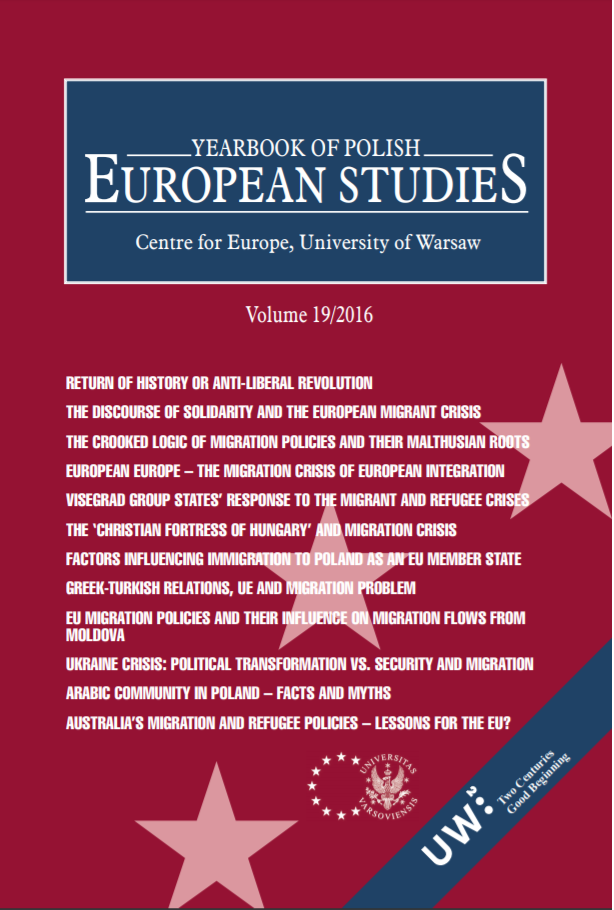Understanding the Visegrad Group States' Response to the Migrant and Refugee Crisis 2014+ in the European Union
Understanding the Visegrad Group States' Response to the Migrant and Refugee Crisis 2014+ in the European Union
Author(s): Marta PachockaSubject(s): Governance, Public Administration, Public Law, Migration Studies, EU-Approach / EU-Accession / EU-Development, Geopolitics
Published by: Centrum Europejskie Uniwersytetu Warszawskiego
Keywords: Visegrad Group;European Union;European Agenda on Migration;migration;asylum;
Summary/Abstract: At least since 2014 the European Union (EU) has been facing the migrant and refugee crises, which have become an important test of solidarity of the Member States (MS). The effectiveness of the common migration and asylum policy has proven to be limited. The crises became a destabilizing factor leading to disagreements and divisions between MS. The position of the Visegrad Group (V4) states stood out in the debate on migration and refugee challenges. The objective of this article is to examine to whatextent the migrant and refugee crises 2014+ in Europe, the limited effectiveness of the EU migration and asylum policy and the differences between the MS in their approaches influenced the situation, in which the Visegrad states attempted to find a common voice, strengthen their position in the EU and formulate the basis for the future common policy on migration and asylum. The article presents the migration and asylum situation in the Visegrad Group countries in recent years, then it discusses the V4 response to the migrant and refugee crisis and the EU solutions with a special focus on relocation and resettlement schemes and finally it provides the content analysis of the V4 official documents.
Journal: Yearbook of Polish European Studies
- Issue Year: 2016
- Issue No: 19
- Page Range: 101-132
- Page Count: 32
- Language: English

